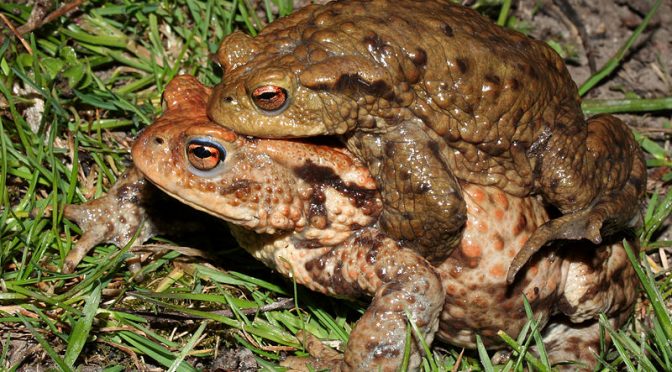The biological roots of prostitution are well documented, but upset religious and political sensibilities.
As a frequent speaker and debate participant on pornography and other sexual issues, I’m often shocked by the lack of scientific understanding of sex, the most fundamental of human issues. This doesn’t just apply to students and casual listeners, but also to many presenting themselves as experts. Science isn’t just absent from the discussion, but often appears to have been deliberately pushed out for political reasons.
Sex is, and always has been, a controversial subject, and so discussion of it is heavily censored. While, on the surface, discussion of sex has become far more acceptable in recent years, in practise, many facts are still considered unpalatable. And no subject arouses more emotion than the evolution of sex as a tradeable commodity: the biology of prostitution.
The idea that prostitution might be a biological impulse can deeply upset those with dogmatic viewpoints. For religious people, the thought of a God that created prostitution is too much to take: fundamentalists are still reeling from the revelation that homosexuality is widespread in nature. But revulsion at the thought of sex trade goes far beyond religion. As the political left has become increasingly conservative in its attitudes, it has become common to blame the existence of prostitution on Patriarchy or Capitalism. Thus, for some feminists, banning prostitution is a part of their war on Patriarchy. And for socialists, attacking prostitution is part of a righteous war against Capital.
But the history of sex trade goes back many millions of years before humanity. To understand how deeply it is embedded in our behaviours, we need to start from the beginning. In the case of sex, the beginning happened about 1.2 billion years ago. Prior to sex, creatures reproduced asexually – by cloning themselves. But cloning simply produces multiple identical copies. Cloned populations lack diversity: this means that they can be quickly wiped out by a disease, climate change or other external factor. Sex fixed this problem.
Sex combines genes from two individuals of different sexes. Unlike cloning, every individual produced is unique. This creates diversity, and makes species more resilient to change; it also vastly accelerates the speed of evolution, by providing far more variety to select from. The two sexes were originally very similar to each other, but quickly sexual strategies evolved, and became more sophisticated. One sex evolved a lazy strategy, and the other responded by taking on most of the reproductive effort. This strategic change defines the sexes. The key difference between males and females is quantitative rather than qualitative: males are low investors in reproduction, and females are high investors. This applies to all sexual species, including – of course – humans.
On the surface then, males were early winners in the evolutionary arms race that biologists sometimes refer to as the Battle of the Sexes. However, although males could (in theory) reproduce at far less cost than females, they faced one enormous obstacle to reproduction: a shortage of available females. Sexual strategies evolved and became more sophisticated. Since reproduction was limited by female availability, then increasingly females could set the terms for reproduction. Males, for whom reproduction was cheap, became forced to jump through hoops in exchange for the right to reproduce.
In some species (such as lions) males are required to violently compete for the right to mate: females simply wait for a winner to emerge. This process means that the strongest, and most violent males get to reproduce, which means that genes for strong, violent males are more likely to be passed down to future generations; this explains why in many cases – especially in mammals – males are bigger and stronger than females, as well as more adept fighters. Human males are around 20% more heavily built than females; in gorillas, the difference is as much as 50%
In other species, males may be required to pay for the right to reproduce. Perhaps the most extreme examples of this are in insects and spiders where males are eaten after sex. The value of reproduction is so high that males will pay with their lives in order to replicate their genes.
Generally though, sex trade is somewhat less terminal than this. Females of many species trade sex for food or other nuptial gifts. This behaviour is common throughout the animal kingdom. Male scorpion flies offer gifts in exchange for sex. Prostitution was observed in penguins over a century ago, and it is common in our close relatives, apes and monkeys.
A Yale economist, Keith Chen, studying whether monkeys could understand the concept of money, made a surprise discovery. Having worked out that coins had value, male monkeys then began to offer them to females for sex, instead of (as expected) trading them for food or drink. As the New York Times pointed out, behaviour that was once assumed to be uniquely human, is actually far more widespread:
“When taught to use money, a group of capuchin monkeys responded quite rationally to simple incentives; responded irrationally to risky gambles; failed to save; stole when they could; used money for food and, on occasion, sex. In other words, they behaved a good bit like the creature that most of Chen’s more traditional colleagues study: Homo sapiens.”
The fact that female sex is far more valuable than male sex provides a strong explanation for many human behaviours. When I recently interviewed black dominatrix Lady Andromeda for the Sex & Censorship podcast, I asked what options were open to people who were down to their last penny. Women, she said, can sell sex. And as for men? “They steal cars, or sell drugs.” This helps explain why the UK prison population is 96% male – a fact that’s hard to explain if one believes (as is fashionable in some places) that the world is run by men, for men. It also neatly explains lower male life expectancies and higher male suicide rates. An understanding of the biology of prostitution provides far better explanations of human behaviour than either the feminist “patriarchal oppression” narrative, or the correspondingly confused claims (by men’s rights activists) that men are oppressed. We are all, male and female, slaves to our biology. We tend to believe that we have free will, but increasingly, science suggests otherwise.
Porn debates I’ve attended tend to be littered with claims that our sexual behaviours are socially constructed, despite all the evidence to the contrary. These ideas aren’t just silly: they’re deeply misguided. If one believes that differences in gender behaviour are primarily social in origin, then it is tempting to look for authoritarian “cures”. If those people selling gay cures are dangerous, then those people who believe men and women should behave the same as each other are far more so.
The good news is that social progress is closing the gaps between men and women. Sexual freedom and migration have significantly brought down the price of sex, and rising food production means that hunger – a major driver of sex trade – is also in steep decline. Correspondingly, violence appears to also be in long-term decline (contrary to popular belief) – at least in part due to the easier availability of sex and food.
This is why anti-sex conservatism – as evidenced by events like France’s recent ban on prostitution – is such a dangerous force. Sexual freedom is about far more than the right to have fun. It affects every aspect of our lives.
My book Porn Panic! is now available for pre-order.

